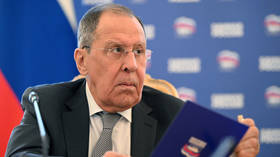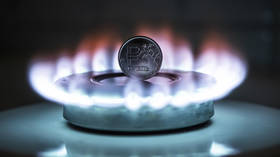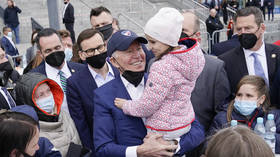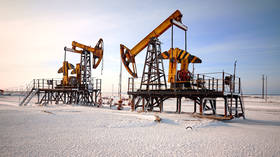Moscow to hit most Western states with visa restrictions

Russia will introduce new visa restrictions for citizens of “unfriendly states” as part of its response to the international sanctions imposed on Moscow amid its ongoing military assault on Ukraine.
Addressing members of the ruling United Russia party, on Monday, Foreign Minister Sergey Lavrov said that a presidential decree “on retaliatory visa measures in connection with the ‘unfriendly’ actions of a number of foreign states” was being drafted.
“This act will introduce a number of restrictions on entry into the territory of Russia,” Lavrov said.
Meanwhile, the procedure for entry and stay in Russia for people without citizenship and those who ended up on the territory of Ukraine has been simplified. This was done “in order to prevent a threat to the life and health” of these people so that they could safely return to their home countries, the minister explained.
Last week, the Prime Minister of Poland Mateusz Morawiecki urged to stop issuing visas for Russian citizens as part of new sanctions against Russia.
“Another suggestion is to freeze visas for all Russians,” he said, explaining that, in his opinion, this was necessary to make Russians aware of what was happening in Ukraine. Belgium previously voiced a similar proposal.
Japan earlier froze the issuance of visas to certain categories of Russians, while Lithuania, Latvia, Norway, and the Czech Republic have stopped issuing visas to all of the country's citizens. Prague and Oslo have also suspended the acceptance of documents for a residence permit.
The Russian list of “unfriendly states,” which initially featured just two countries – the US and Czech Republic – was significantly expanded in March in the wake of the unprecedented sanctions imposed on Moscow by the West. Now it includes all the EU members, Ukraine, the UK, Canada, Japan, and others.
All these countries are subject to various retaliation measures, restrictions and specific requirements from Russia. Recently, President Vladimir Putin ordered all payments for the natural gas from the “unfriendly states” to be switched to rubles – a measure which was collectively rejected on Monday by the G7.
Another “retaliation” initiative saw the Finance Ministry requesting Russian companies wishing to work with firms from countries on the list to receive government permission first.
Moscow sent troops into Ukraine in late February, following a seven-year standoff over Kiev’s failure to implement the terms of the Minsk agreements and end the conflict with the breakaway regions of Donetsk and Lugansk. Russia ended up recognizing the two as independent states, at which point they asked for military aid.
Russia demands that Ukraine officially declare itself a neutral country that will never join the US-led NATO military bloc. Kiev insists the Russian offensive was completely unprovoked and has denied claims it was planning to retake the two Donbass republics by force.















